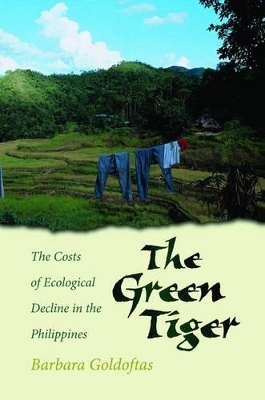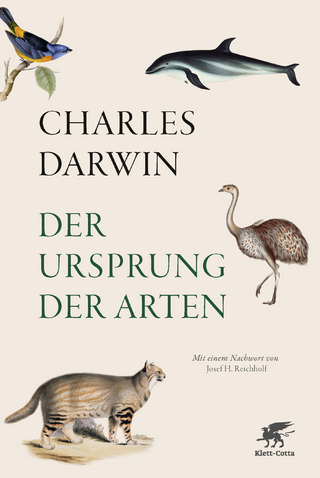
The Green Tiger
The Costs of Ecological Decline in the Philippines
Seiten
2006
Oxford University Press Inc (Verlag)
978-0-19-513511-4 (ISBN)
Oxford University Press Inc (Verlag)
978-0-19-513511-4 (ISBN)
Once famous for the beauty of its beaches, reefs, and forests, today the Philippines typifies the deep economic and social problems that ecological decline can bring. The Green Tiger gives an intimate, unflinching, but optimistic view of a country struggling to integrate conservation with development.
Once famous for the beauty of its white beaches, reef-ringed islands, and lush forests, today the Philippines is known as an example of the deep costs of ecological decline. In less than a generation, large and small users alike felled the forests, shattered the coral reefs, and over-fished the oceans. The rapid harvest of the once-abundant resources has brought environmental changes: droughts, deadly flash floods, and the collapse of vital fisheries. The
consequences have reverberated throughout the country. As the rural economy weakened, millions migrated to the cities, overwhelming the infrastructure and deepening the problems of urban health. Pioneering
efforts have been launched to curtail the environmental damage and manage the resources that remain. Trained as a botanist and plant ecologist, writer Barbara Goldoftas traveled extensively throughout the archipelago to document the loss of the natural resources, the dramatic human costs, and efforts to reverse the decline. Along the forest frontier, she met villagers whose fields had been washed away by mudslides and church workers risking their lives to defend the dwindling forests. In
coastal villages, she spoke with fishermen who, having watched their catches diminish with the dying reefs, enforced the boundaries of no-take zones. In towns and villages alike, she interviewed local
politicians and leaders of non-governmental organizations working to combine conservation and development and keep their communities intact. Written about a country often described as an environmental worst-case scenario, The Green Tiger offers an unusually close look at the consequences of ecological decline and determined efforts to reverse them. It argues that, rather than destroying a natural resource base, development should integrate conservation and economic growth. It gives
a realistic, but optimistic vision of the long process of "nation-building" that is the backdrop of environmental work in a developing country and a new democracy.
Once famous for the beauty of its white beaches, reef-ringed islands, and lush forests, today the Philippines is known as an example of the deep costs of ecological decline. In less than a generation, large and small users alike felled the forests, shattered the coral reefs, and over-fished the oceans. The rapid harvest of the once-abundant resources has brought environmental changes: droughts, deadly flash floods, and the collapse of vital fisheries. The
consequences have reverberated throughout the country. As the rural economy weakened, millions migrated to the cities, overwhelming the infrastructure and deepening the problems of urban health. Pioneering
efforts have been launched to curtail the environmental damage and manage the resources that remain. Trained as a botanist and plant ecologist, writer Barbara Goldoftas traveled extensively throughout the archipelago to document the loss of the natural resources, the dramatic human costs, and efforts to reverse the decline. Along the forest frontier, she met villagers whose fields had been washed away by mudslides and church workers risking their lives to defend the dwindling forests. In
coastal villages, she spoke with fishermen who, having watched their catches diminish with the dying reefs, enforced the boundaries of no-take zones. In towns and villages alike, she interviewed local
politicians and leaders of non-governmental organizations working to combine conservation and development and keep their communities intact. Written about a country often described as an environmental worst-case scenario, The Green Tiger offers an unusually close look at the consequences of ecological decline and determined efforts to reverse them. It argues that, rather than destroying a natural resource base, development should integrate conservation and economic growth. It gives
a realistic, but optimistic vision of the long process of "nation-building" that is the backdrop of environmental work in a developing country and a new democracy.
Barbara Goldoftas teaches environmental studies at Wellesley College. A nonfiction writer trained in botany and environmental health, she is the recipient of a National Magazine Award for Public-Interest Journalism. She lives in the Boston area.
| Erscheint lt. Verlag | 26.1.2006 |
|---|---|
| Zusatzinfo | 15 halftones, 1 map |
| Verlagsort | New York |
| Sprache | englisch |
| Maße | 234 x 174 mm |
| Gewicht | 376 g |
| Themenwelt | Naturwissenschaften ► Biologie ► Evolution |
| Naturwissenschaften ► Biologie ► Ökologie / Naturschutz | |
| Naturwissenschaften ► Biologie ► Zoologie | |
| ISBN-10 | 0-19-513511-3 / 0195135113 |
| ISBN-13 | 978-0-19-513511-4 / 9780195135114 |
| Zustand | Neuware |
| Haben Sie eine Frage zum Produkt? |
Mehr entdecken
aus dem Bereich
aus dem Bereich
Komplette Neuübersetzung. Mit einem Nachwort von Josef H. Reichholf.
Buch | Hardcover (2018)
Klett-Cotta (Verlag)
48,00 €
Wie die Vernichtung der Arten unser Überleben bedroht - Der …
Buch | Softcover (2023)
Penguin (Verlag)
15,00 €


